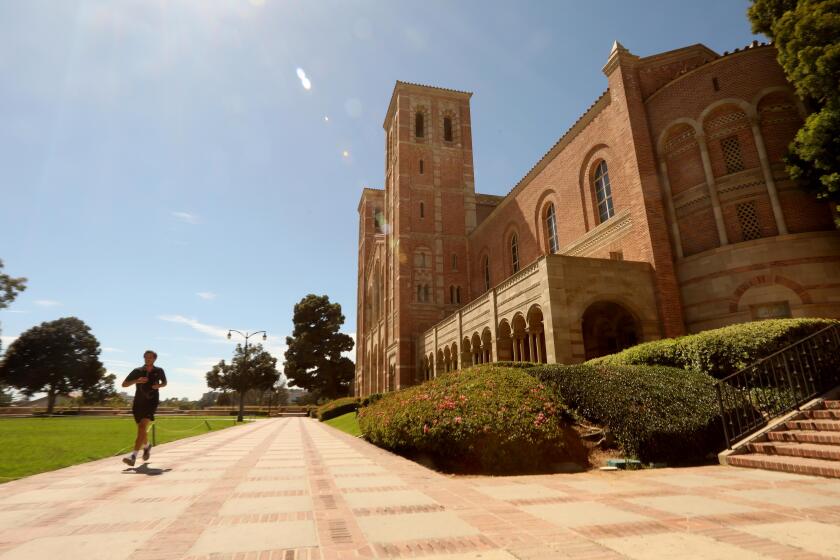Gates Blasts Police Union Over Ticket Quota Dissent
The Los Angeles Police Protective League is a “bunch of dissidents who just don’t want to work,” Chief Daryl F. Gates said Friday, reacting to a league lawsuit seeking to prohibit the department from imposing arrest quotas on traffic enforcement officers.
State law bars law enforcement agencies from establishing arrest quotas for its officers, but the league claims in its suit that the Police Department is doing so by calling quotas production “goals.”
Officers in the Central Traffic Division were advised last month that they were expected each day to write at least 10 tickets and make one drunk driving arrest and that 60% of their tickets were to be written for major moving violations, the civil suit, filed this week in Los Angeles Superior Court, says.
“Our contention is that when you lay down those kinds of minimums, those in fact become quotas,” Edward L. Faunce, the league’s attorney, said.
By whatever name the practice is called, the league--the police officers’ labor union--wants it stopped. Its suit asks the court to bar the department from imposing the “goals” as arrest quotas.
Named as defendants are the City of Los Angeles, the Police Department, Gates and Capt. Ernest Curtsinger, head of the Central Traffic Division.
“Obviously the labor union doesn’t want our people to work.” Gates said. “We have supervisors who urge our people to go out and work. If that’s wrong, we’re in trouble. The protective league does not represent the feeling of the vast majority of the members of the Los Angeles Police Department.”
The league and Los Angeles police officers are one and the same, league President George Aliano said. Gates should be very aware of that, because of a survey he conducted about four years ago, he added.
That survey, Aliano said, showed that an officer’s confidence in the league was second only to his confidence in his partner. Confidence in the department’s top brass, he added, was the second lowest, the survey showed--finishing just above confidence in the Police Commission.
“We represent 98% of the officers, and membership is voluntary,” Aliano said. “We (league officials) have to be elected, and the membership pays our salary. If we weren’t doing the job, we wouldn’t be elected. I’m not sure Chief Gates could withstand an election.”
The Police Department’s manual gives officers discretion in writing a ticket or issuing a warning, Aliano said.
“To say an officer must write 10 tickets a day violates the manual, the state Vehicle Code and the rights of citizens,” the league president said. “It puts an unfair burden on the public to require an officer to write 10 tickets a day. A warning might suffice in some cases, but the officer is under pressure to write 10 tickets.”
In attacking the suit, Gates said: “Drunk driving is a terrible menace. We have a very aggressive enforcement policy, I admit that. We will continue that aggressive enforcement policy.
“Our ‘quota’ is to reduce death and reduce injuries caused by traffic accidents. The protective league is not interested in the concerns of the public, and it’s unfortunate they’re not.”
The league’s concern for the public is illustrated by the fact that it does not want to see citations forced on people when a warning will suffice, Aliano said.
The league is just as concerned about drunk drivers and reducing injuries and death as the chief is, but those arrests must be carried out within the law, the official added.
During collective bargaining in 1980, the league won a court order barring a quota system for writing traffic tickets, a system the department claimed never existed.
The league had sued the department after a reported shape-up-or-ship-out talk by a Central Traffic Division captain.
Six officers said in sworn statements that the captain told police any “lack of production” in traffic citations would be considered a job action and that the penalty for job actions is termination.
More to Read
Sign up for Essential California
The most important California stories and recommendations in your inbox every morning.
You may occasionally receive promotional content from the Los Angeles Times.











